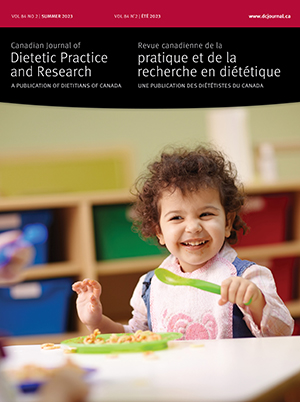Abstract
Purpose: When admitted to the hospital, individuals with celiac disease rely on food handlers for provision of safe, uncontaminated gluten-free meals. We aimed to assess the knowledge of gluten-free diet (GFD) amongst individuals involved in meal preparation for patients.
Methods: A questionnaire with 10 demographic and 35 test items to assess knowledge of GFD, including workplace scenarios encountered in meal preparation, was administered to food handlers including cooks, utility workers, dietary technicians, and supervisors in 2 tertiary care, university-affiliated hospitals. A score of ≥28 of 35 (≥80%) was considered a “pass”.
Results: A total of 72 individuals completed the study, mean age 40.3 ± 1.6 years, 75% female. Only 42 (56.8%) scored ≥80% and achieved a pass. The average score was 75.9% ± 13.4%, range 25.7%–100%. The supervisors had significantly higher scores (87.9% ± 11.4%) than utility workers (73.0% ± 11.4%; P = 0.01) and cooks (71.7% ± 14.5%; P = 0.01). Cooks had the lowest scores with 80% scoring <80%. Females scored higher than males (77.8% vs. 68.8%; P = 0.02).
Conclusions: There are significant differences in GFD knowledge amongst various groups involved in food preparation in hospitals. The gaps identified in knowledge can potentially compromise the safety of patients with celiac disease. Targeted interventions to educate hospital food handlers about GFD are warranted. Registered Dietitians can play an important role in providing this education.
Résumé
Objectif. Lorsqu’elles sont admises à l’hôpital, les personnes atteintes de la maladie cœliaque comptent sur les manipulateurs d’aliments pour leur procurer des repas sans gluten sécuritaires et non contaminés. Nous voulions évaluer les connaissances sur le régime sans gluten (RSG) des personnes jouant un rôle dans la préparation des repas des patients.
Méthodes. Un questionnaire comprenant 10 questions démographiques et 35 questions d’évaluation des connaissances sur le RSG, dont des scénarios de préparation de repas en milieu de travail, a été distribué à des manipulateurs d’aliments. Parmi ceux-ci se trouvaient des cuisiniers, des employés de services publics, des techniciens en diététique et des superviseurs dans 2 hôpitaux de soins tertiaires affiliés à une université. Un score de ≥ 28 sur 35 (≥ 80 %) était considéré comme un succès.
Résultats. Au total, 72 personnes ont participé à l’étude. L’âge moyen était de 40,3 ± 1,6 ans, et 75 % étaient des femmes. Seulement 42 personnes (56,8 %) ont réussi avec un score de ≥ 80 %. Le score moyen était de 75,9 ± 13,4 %, avec une fourchette de 25,7 % à 100 %. Les superviseurs ont obtenu des scores significativement plus élevés (87,9 ± 11,4 %) que les employés de services publics (73,0 % ± 11,4 %; P = 0,01) et les cuisiniers (71,7 % ± 14,5 %; P = 0,01). Les cuisiniers ont obtenu les plus faibles scores; 80 % d’entre eux ayant obtenu un score < 80 %. Les femmes ont obtenu un score plus élevé que les hommes (77,8 % contre 68,8 %; P = 0,02).
Conclusions. On observe des différences significatives quant aux connaissances sur le RSG parmi les divers groupes jouant un rôle dans la préparation des aliments dans les hôpitaux. Les écarts relevés dans les connaissances pourraient compromettre la sécurité des patients atteints de la maladie cœliaque. Des interventions ciblées visant à former les manipulateurs d’aliments dans les hôpitaux sur le RSG sont nécessaires. Les diététistes peuvent jouer un rôle important dans cette formation.



